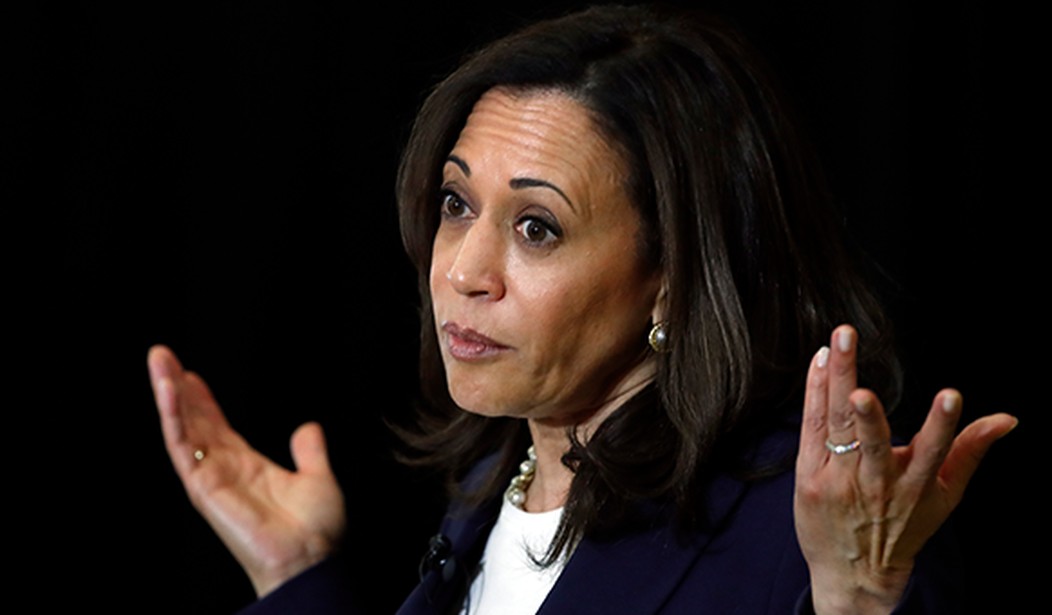As the cast of characters vying for the Democratic presidential nomination seeks to distance themselves from the rest of the herd by embracing an even more irresponsible platform, California Sen. Kamala Harris recently upped the ante to new levels.
Speaking to an audience of labor members and organizers at The Enclave in Las Vegas, Harris called for a federal ban on right-to-work laws, declaring, “I’d use my executive authority to make sure barriers are not in place to do the advocacy (unions) need to do.”
At least she’s consistent. Harris’s latest foray into Constitutional contempt, in fact, came just days after her promise to roll back the Second Amendment — again, relying on executive action.
Evidently, she’s planning a rewrite of her presidential oath replacing that pesky phrase promising to “preserve, protect and defend” the Constitution with the alternate wording, “weaken, mock and ignore.”
Not that anyone should be surprised at this point. After all, one of Harris’ most trusted campaign advisers is Laphonza Butler, who spent 10 years as president of scandal-plagued SEIU 2015, California’s largest labor union.
On Butler’s watch, the U.S. Supreme Court issued a ruling in 2014 (Harris v. Quinn) that did away with mandatory union dues and fees for the Medicaid-reimbursed homecare providers represented by SEIU 2015, prompting Butler to spend the next four years scheming with the state’s political leaders to find ways to avoid compliance.
Recommended
The stakes were raised last summer, however, when the court followed up by issuing a ruling in Janus v. AFSCME that eliminated compulsory union support for all government workers.
No doubt Butler’s experience in California will prove invaluable should Sen. Harris one day become President Harris and decide to violate the Constitution on a national scale.
As a reminder, right-to-work laws — which 28 states have on their books — do nothing to erect “barriers” to union membership. Likewise, nothing in Harris or Janus prevents workers from organizing if they so choose.
The key is, now workers are free to decide for themselves rather than ceding their First Amendment rights to politicians and the unions that control them.
Unions are private contractors providing a service no different than any other. No law dictates what bank or insurance company workers must use — let alone which political candidates and causes they must support. Why does Harris believe unions must be handed a monopoly over workplace representation services?
At best, it’s because the unions that pull her strings aren’t convinced they can survive if they’re forced to actually compete for the workers’ business the way service providers do in the private sector.
At worst, they already know the answer.
As always, Kamala Harris cloaks her power grab in lofty rhetoric about freedom and workers’ rights. But the truth is just the opposite.
Her ulterior motive is to appease union donors nostalgic for the days when their pocketbooks and political influence ruled the day.
Even considering such an arrangement — let alone imposing it via executive order — should condemn Sen. Harris’ political aspirations to an ignominious end. But in the twisted world of modern political campaigns, there are no such assurances.

























Join the conversation as a VIP Member